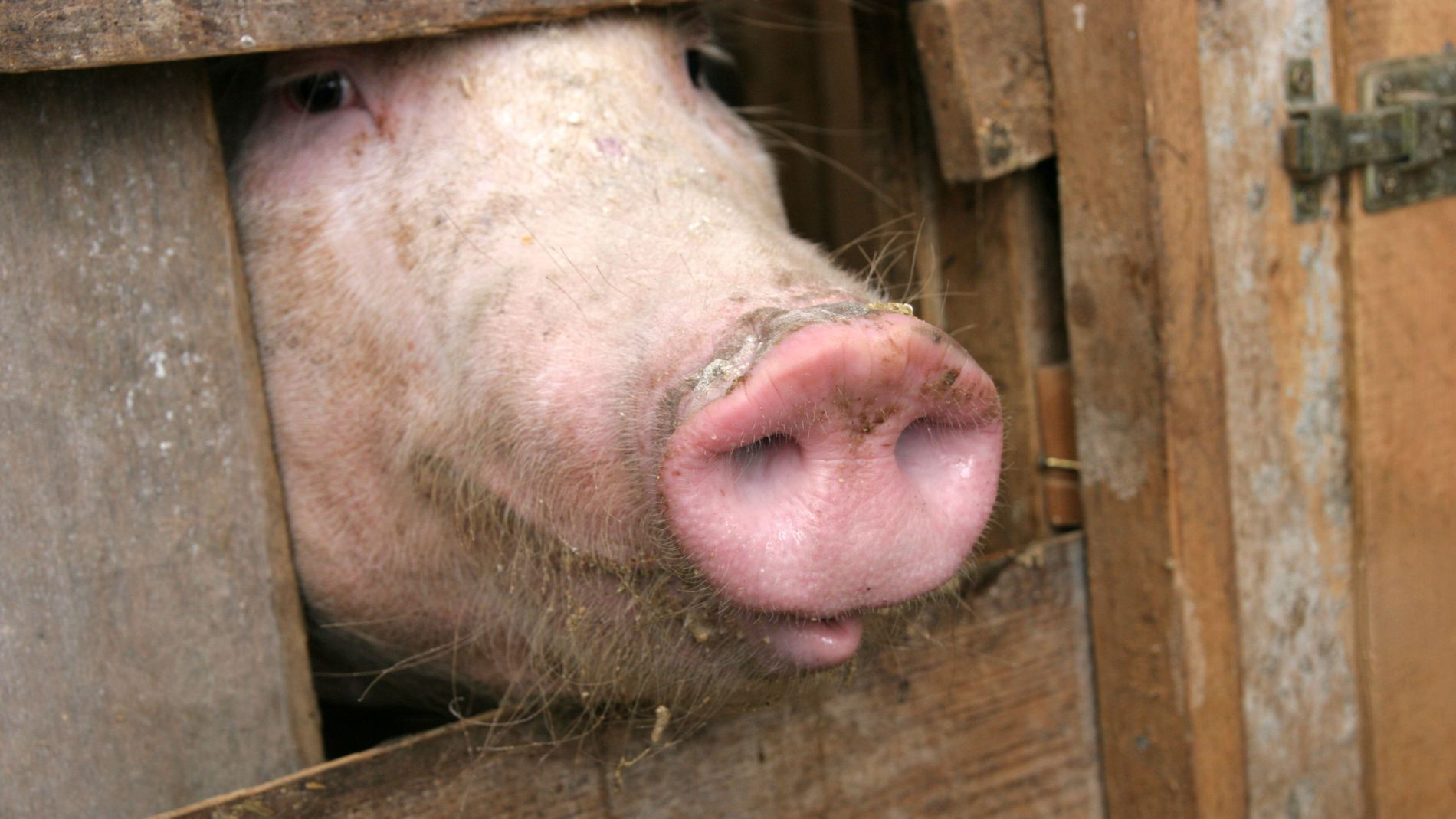Reading time: 6 minutes
Latin America is rapidly becoming a hub for cutting-edge meat science, with researchers from countries like Mexico, Colombia, Costa Rica, and Argentina at the forefront. These scientists are presenting new evidence that supports the potential benefits of daily meat consumption and challenging long-held beliefs about beef, pork, and chicken.
Through years of rigorous laboratory work and studies, they are contributing to a nuanced understanding of meat’s role in human health and reshaping the global conversation around animal proteins.
This article explores some of the most recent scientific developments from the region and how their findings are influencing medical recommendations and consumer attitudes.
A Colombian study links pork to better metabolic health

A recent study from the University of La Sabana in Colombia suggests that eating lean pork may have positive effects on health without increasing the risk of cardiovascular disease.
The eight-week study, conducted by the university's Faculty of Medicine, involved 47 participants between the ages of 30 and 45. Researchers found that lean pork consumption did not raise cholesterol or triglyceride levels, but instead increased levels of such micronutrients as iron, zinc and riboflavin (vitamin B2).
"Like any food, pork should be consumed based on individual nutritional needs," said Dr. Fernando Lizcano, lead researcher and professor at the university in a press release. "Two to three servings of meat per week is sufficient."
The study also observed a positive effect on adiponectin, which is a hormone associated with improved insulin sensitivity and reduced cardiovascular risk. “Pork doesn’t lead to weight gain and generally contains less fat than beef, depending on the cut,” Lizcano noted. “Modern breeding has significantly reduced the fat content, and pork offers high-quality and easily digestible proteins.”
The study also addressed common misconceptions about pork, including concerns about parasites and allergies. According to Lizcano, current farming practices ensure high sanitary standards, and allergic reactions to pork are rare and typically occur among individuals who are already sensitive to other allergens.
Mexico reinforces scientific understanding of pork’s nutritional profile
Pork is a nutrient-rich food that offers several health benefits, according to Dr. María de la Luz Zambrano, professor at the Cuautitlán Faculty of Higher Studies (FES) at the National Autonomous University of Mexico (UNAM).
In a recent press release, Zambrano emphasized that pork contains monounsaturated fats, similar to those found in olive oil, as well as high-quality protein, essential amino acids, and important minerals, in addition to thiamine and vitamin B12. "Pork has been stigmatized as an unhealthy, high-fat meat," she said. "But in reality, it provides many nutritional benefits. Like any meat product, it should be eaten in moderation."
Zambrano explained that pork fat is often misunderstood, since it is generally healthier than beef or veal fat and contains beneficial monounsaturated fatty acids. Pork is also rich in iron, zinc, and potassium, which are key nutrients for blood cell production and overall health. “This is one of the reasons why it should be part of a balanced diet,” she said.
Dr. Zambrano acknowledged that pork gained a negative reputation in the 1960s and 1970s, mostly due to concerns about parasitic infections such as cysticercosis. However, she clarified that modern agricultural practices and strict biosecurity protocols, such as Mexico’s respected Federal Inspection Type (TIF) certification, have significantly reduced risks. Nowadays, pigs are raised under controlled conditions, with regulated feed and hygienic handling procedures.
From an environmental standpoint, Zambrano pointed out that pork production has a lower carbon footprint than beef. Pig farming accounts for just 3% of carbon dioxide emissions from livestock, compared to 31% from cattle. Chicken farming remains the lowest, at 1.9%.
She recommended consumers to choose low-fat cuts such as sirloin, loin, and leg, which are rich in oleic, palmitic, and linoleic acids. On the other hand, she added, fattier cuts like ribs, bacon, and chops should be eaten less frequently, since they may contribute to elevated cholesterol and triglyceride levels.
Costa Rican beef found rich in health-boosting fatty acids

A recent study by the Animal Nutrition Research Center (CINA) at the University of Costa Rica has confirmed that beef produced in the country contains notable levels of conjugated linoleic acid (CLA), also known as rumenic acid, a naturally occurring fatty acid linked to cancer prevention, heart health, and immune support. The CLA, specifically the cis-9, trans-11 isomer, is formed in the cattle’s digestive system and it results from microbial activity in the rumen that converts polyunsaturated fatty acids from the animal's diet into saturated fats, producing CLA as a byproduct.
Using chromatography to determine total fat and fatty acid profiles, researchers examined 50 loin samples from four major livestock areas of Costa Rica, which are San Carlos, Guanacaste, Guápiles, and Pérez Zeledón. The results showed that Costa Rican beef can provide between 1.25 mg and 103 mg of CLA per day, depending on the cut and zone, and this represents between 2% and 100% of its recommended daily intake. CLA levels were highest in beef from Guanacaste and San Carlos, aligning with international averages. In contrast, beef from Pérez Zeledón, which had a lower total fat content, showed lower CLA levels.
The study not only underscores the nutritional value of Costa Rican beef, but also its potential role as part of a daily diet recommendation.
Argentine study highlights heart-healthy benefits of chicken meat

A report from Argentina’s Chicken Meat Nutritional Information Center (CINCAP) is putting poultry in the spotlight for its role in promoting cardiovascular health. The study underscores chicken’s low cholesterol and saturated fat content, emphasizing its value as a lean protein that supports the consumer’s well-being.
Cholesterol, the report notes, is essential for various bodily functions, including hormone production and the absorption of fat-soluble vitamins like A, D, E, and K. Since not all cholesterol is equal, the study draws a clear distinction between LDL (“bad”) cholesterol, which can contribute to arterial blockages, and HDL (“good”) cholesterol, which helps remove excess cholesterol from the bloodstream. According to CINCAP, dietary saturated fats, found in red meats, processed meats and dairy products, have the most significant impact on blood cholesterol levels and health guidelines recommend keeping saturated fat intake below 10% of daily calories.
Chicken meat, when skinless, is notably low in saturated fat. “A medium-sized, skinless portion of chicken provides less than 10% of the recommended saturated fat intake for a 2,000-calorie diet,” the study stated. For example, chicken breast contains only 45 milligrams of cholesterol per 100 grams, with slightly higher levels found in the leg. The report further highlights that 70% of chicken’s fat is located in the skin and abdominal fat pads, both of which can be easily removed before cooking. Once trimmed, the meat offers a low-fat profile dominated by unsaturated fats, which are beneficial for heart health.
“Chicken is a lean food par excellence,” the study noted, affirming that it is a good dietary choice for those who seek to maintain healthy cholesterol levels and cardiovascular wellness.
Latin America: A global reference in meat science
While this article offers just a snapshot of the growing body of academic and institutional research emerging from Latin America, one message stands out: meat consumption, when part of a balanced diet, provides significant health benefits. Whether it's beef, pork, or chicken, each source of animal protein delivers essential vitamins, supports cardiovascular health and contributes to overall physical well-being.
As researchers across the region continue to explore meat’s nutritional value, Latin America is positioning itself as a leader in evidence-based food science. The work is far from over, but the current findings are clear. Meat remains a vital component of a healthy diet, with benefits that extend across all stages of life and will likely continue to be reaffirmed by science in the decades ahead.
Sources
Centro de Información Nutricional de la Carne de Pollo (CINCAP) de Argentina, “Colesterol, salud cardiovascular y carne de pollo” Gacetilla CINAP. https://www.cincap.com.ar/wp-content/uploads/2021/11/GACETILLA-CINCAP-Colesterol-Noviembre-2021.pdf
Lugo, Guadalupe. “Beneficios multiples de la carne de cerdo: posee proteínas, minerales, vitaminas del grupo B y aminoácidos esenciales” Gaceta UNAM: Universidad Nacional Autónoma de México (Ciudad de México): https://www.gaceta.unam.mx/beneficios-multiples-de-la-carne-de-cerdo/
O’Neal-Coto, Katzy “Carne de res contiene ácido graso que protege contra el cancer”. Universidad de Costa Rica. Ciencia y Tecnología. https://www.ucr.ac.cr/noticias/2017/09/29/carne-de-res-contiene-acido-graso-que-protege-contra-el-cancer/common.html
Universidad de la Sabana (Colombia), “La carne de cerdo beneficia la salud, según estudio” Equipo de Comunicación Institucional. https://www.unisabana.edu.co/noticias/al-dia/la-carne-de-cerdo-beneficia-la-salud-segun-estudio










